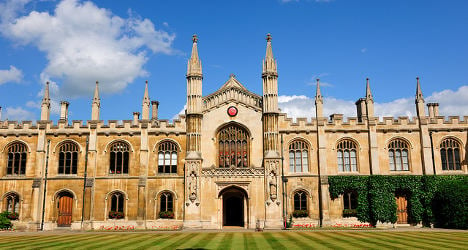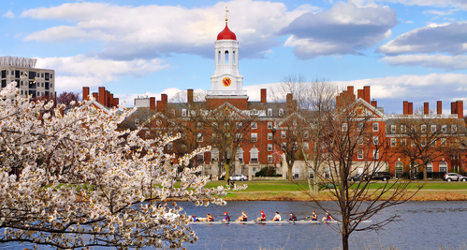If you are passionate about pursuing a degree in Italian, there are a number of top universities around the world that are famous for providing excellent courses for their students.
Italian is spoken by over 60 million people, from Italy to East Africa and South America. But as The Local found out, the top ten universities that offer Italian degrees are all in English-speaking countries.
The best three universities that offer an Italian-only degree are in the US and the UK, while universities in Canada and Australia also feature in the top ten, based on Times Higher Education’s World University Rankings for arts and humanities.
California’s Stanford University, ranking at number one, offers the chance to learn Italian through intensive language courses and provides its students with a deeper understanding of Italy through the study of its literature, culture, traditions and history.
The university offers an excellent Italian degree and the possibility of studying in Italy through the Stanford in Florence programme.
The three-year degree focuses on providing a complete learning experience of Italian, from its grammar to its immediate oral communication, cultural studies and academic and creative writing.
By the end of the programme, not only will you be able to understand Italian and Italian culture, but you will have done so in one of the top universities in the world.
Stanford University, California. Photo: Waqas Mustafeez
The second best university for arts and humanities is Harvard University. The famous university is located in Boston, which is home to many Italian-Americans and was one of the main destinations of the Italian immigration flows.
Harvard University’s Department of Romance Languages and Literatures, among other programmes such as French and Francophone or Hispanic studies, offers a course in Italian Studies.
By the end of the programme students will have gained an excellent level in Italian and knowledge of the major periods of Italian literature, ranging from Dante and his Divine Comedy to current Italian theatre and film.
Harvard University’s programme will also integrate studies about the culture and literature of Italian-speaking communities around the world, as well as those of the main immigrant populations within Italy. In addition, the course gives its students the chance of studying abroad and experience of Italy’s most famous cities, Venice.
Harvard University, Boston. Photo: Shutterstock
Finally, another great location and prestigious university that offers an Italian degree is the UK's University of Cambridge.
Cambridge is famous for offering the best courses and teachers and, unsurprisingly, it is listed as the third top university for arts and humanities.
The university’s Italian degree programme lasts four years, during which students will not only achieve a complete knowledge of the Italian language, but they will also engage in discussions about autobiography and self-representation in Italian literature and modern culture.
Unlike Stanford and Harvard, Cambridge makes it compulsory to spend the third year of the programme in Italy. This provides every student with the chance to enrich their vocabulary as well as experiencing the Italian way of life.






 Please whitelist us to continue reading.
Please whitelist us to continue reading.
Member comments